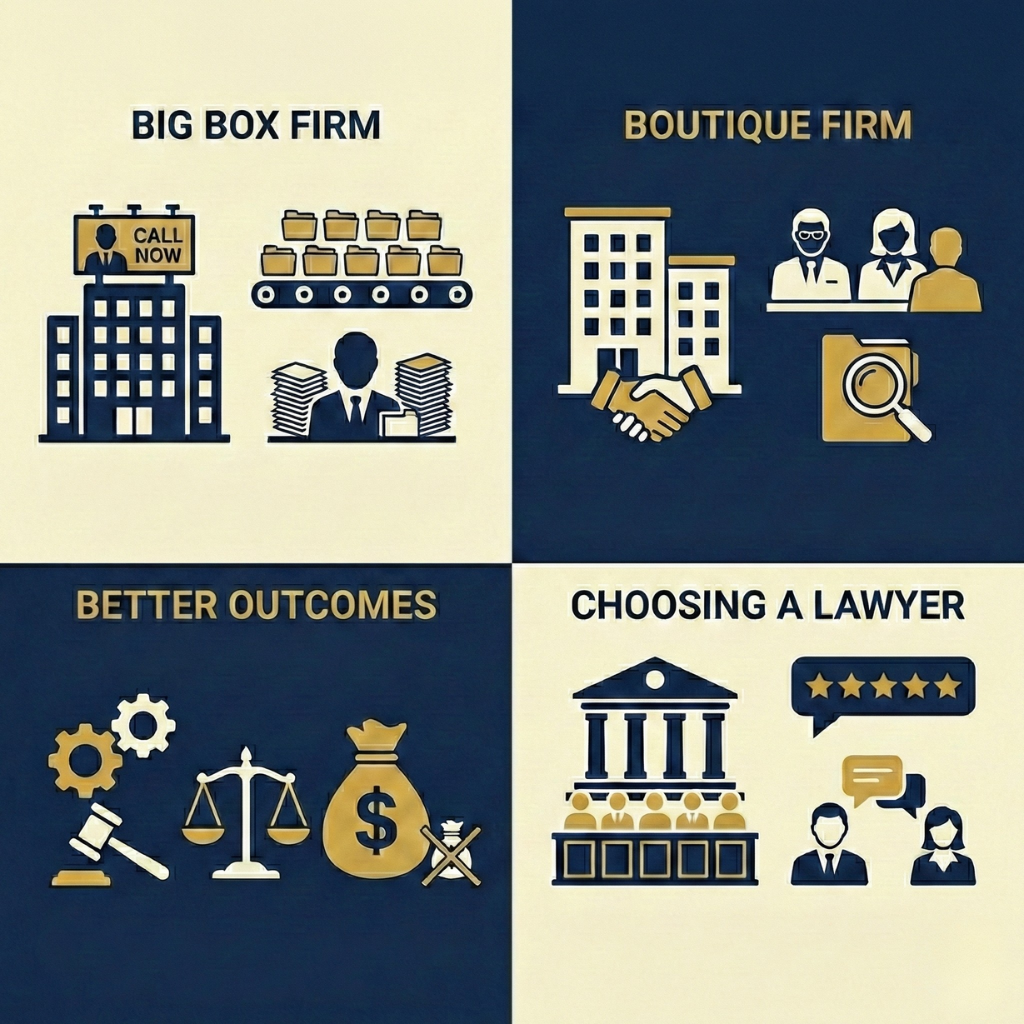Understanding Negligent Security Laws in Florida: Your Rights After Being Victimized
Attacked on someone's property? Learn Florida negligent security laws, 2023 changes, and your legal rights. Free consultation with experienced attorneys.
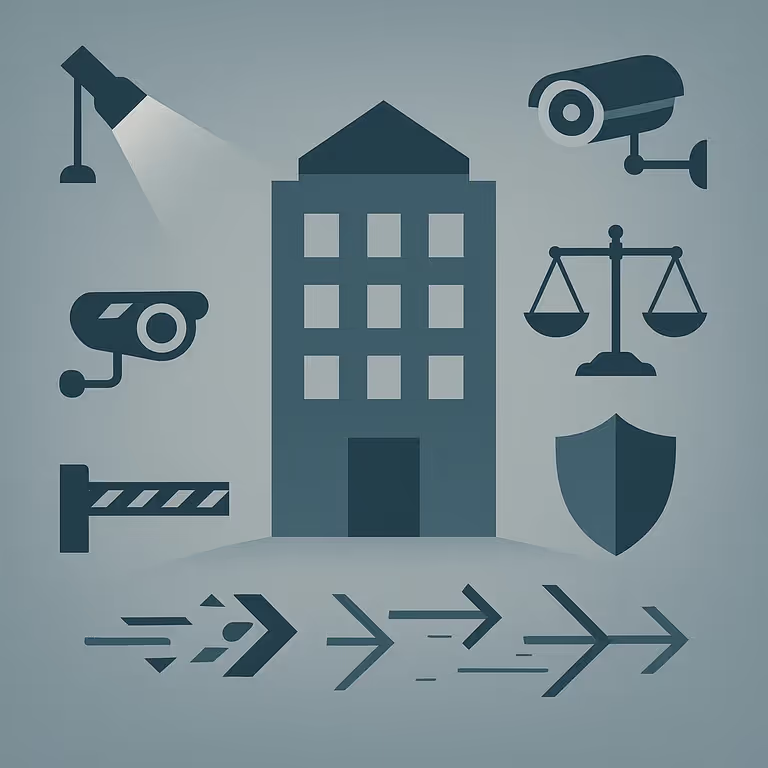
- Property owners must take reasonable security measures against foreseeable crimes, but aren't responsible for every incident that occurs.
- Florida's 2023 tort reform made negligent security cases harder by requiring juries to consider the criminal's fault percentage.
- Strong cases require evidence of prior similar incidents, inadequate security measures, and proof that reasonable precautions could have prevented the crime.
Worried About Your Injury Case? We'll Review It - Free!
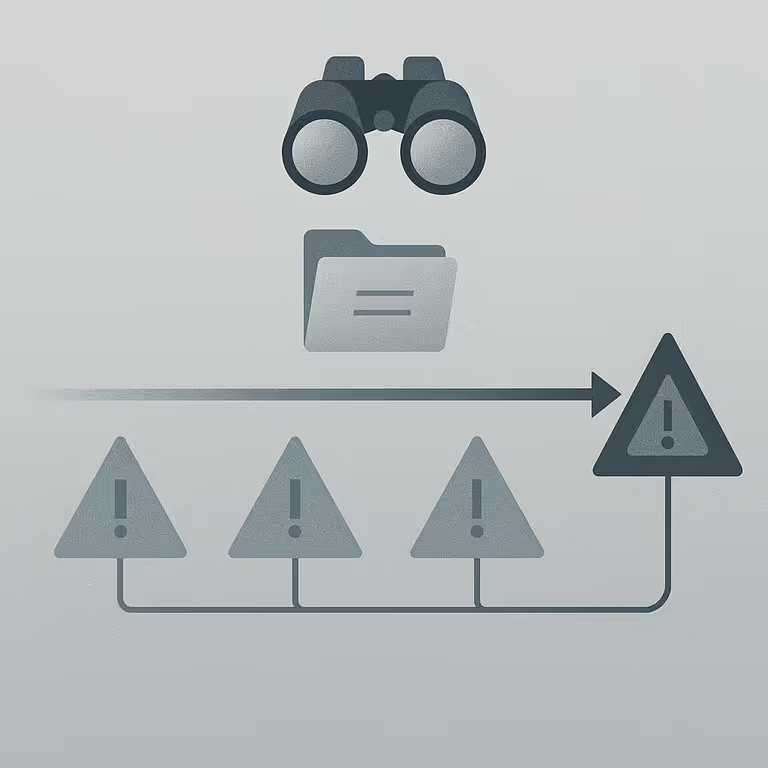

What Is Negligent Security? Understanding Your Rights in Simple Terms
Negligent security happens when a property owner doesn't take reasonable steps to protect visitors from crimes that they should have seen coming. If you've been the victim of a crime on someone else's property, you might have legal rights you didn't know about.
Think of it this way: imagine you're attacked in a poorly lit parking lot where similar crimes have happened before, but the store owner never added security cameras or better lighting. That could be negligent security. The property owner had a duty to keep you reasonably safe, but they failed to do it.
This area of law falls under something called "premises liability," which means property owners have a legal responsibility to keep visitors reasonably safe from harm. However, it's important to understand what negligent security is NOT. Property owners aren't responsible for every single crime that happens on their property. They're only held accountable for crimes that were foreseeable and could have been prevented with reasonable security measures.
The key word here is "reasonable." Property owners aren't expected to turn their businesses into fortresses or hire armies of security guards. They just need to take sensible precautions based on what a reasonable person would do in their situation. For example, if there have been several purse snatchings in a mall parking lot, a reasonable property owner might add more lighting, security cameras, or patrol services.
Understanding your rights after being victimized on someone's property is crucial, especially with recent changes in Florida law. If you've been hurt by a crime that happened on someone else's property, our Melbourne premises liability lawyers can help you understand whether you may have a valid case.
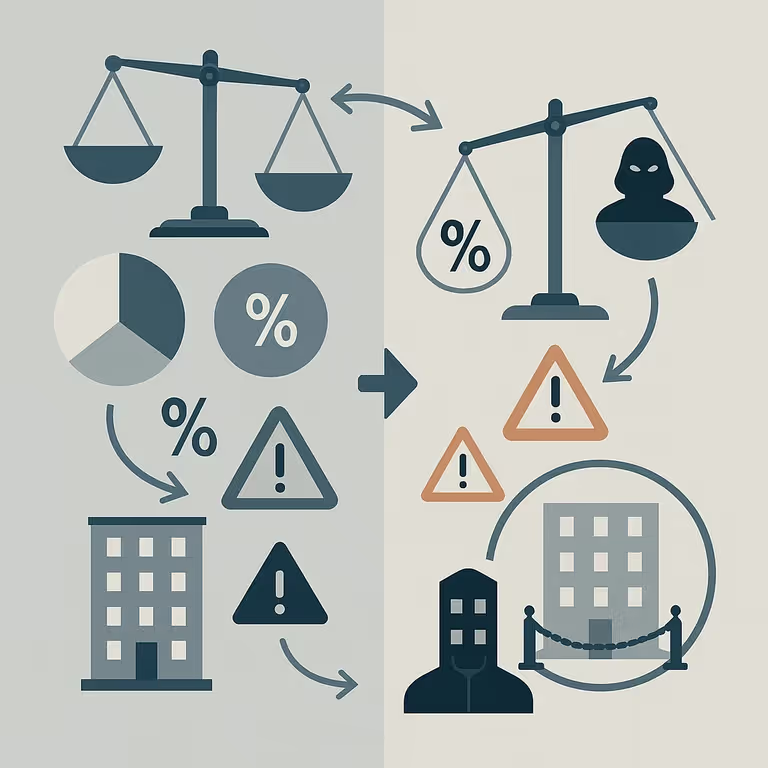
The Key Legal Test: Was the Crime Foreseeable?
The most important question in any negligent security case is simple but critical: Could the property owner reasonably predict that this type of crime might happen? This is called "foreseeability," and it's the heart of every negligent security claim in Florida.
Courts use something called the "prior similar incidents test" to determine foreseeability. Essentially, they look at whether similar crimes happened at that location before. The more similar the previous crimes were to what happened to you, the stronger the argument that the crime was foreseeable.
Here are some clear examples to help you understand:
- Foreseeable scenario: You're robbed at gunpoint in a parking garage where three armed robberies happened in the past year, but the owner never added security measures.
- Probably not foreseeable: You're robbed at gunpoint in the same parking garage, but the only previous incidents were minor acts of vandalism or car break-ins.
The law requires that previous incidents be "fairly similar" to the crime that happened to you. A history of property damage usually doesn't make violent personal crimes foreseeable, and vice versa.
Property owners must have either actually known about the danger or reasonably should have known about it. This means they might be responsible even if they didn't directly witness previous crimes, as long as a reasonable person in their position would have been aware of the risk. For example, if local police regularly patrol an area due to crime problems, or if other businesses in the area have experienced similar incidents, a property owner might be expected to know about the elevated risk.
Evaluating foreseeability requires understanding local crime patterns, legal precedent, and how courts in your area interpret these requirements. What seems obvious to a victim might not meet the legal standard, which is why having experienced legal guidance is so important when evaluating these complex cases.
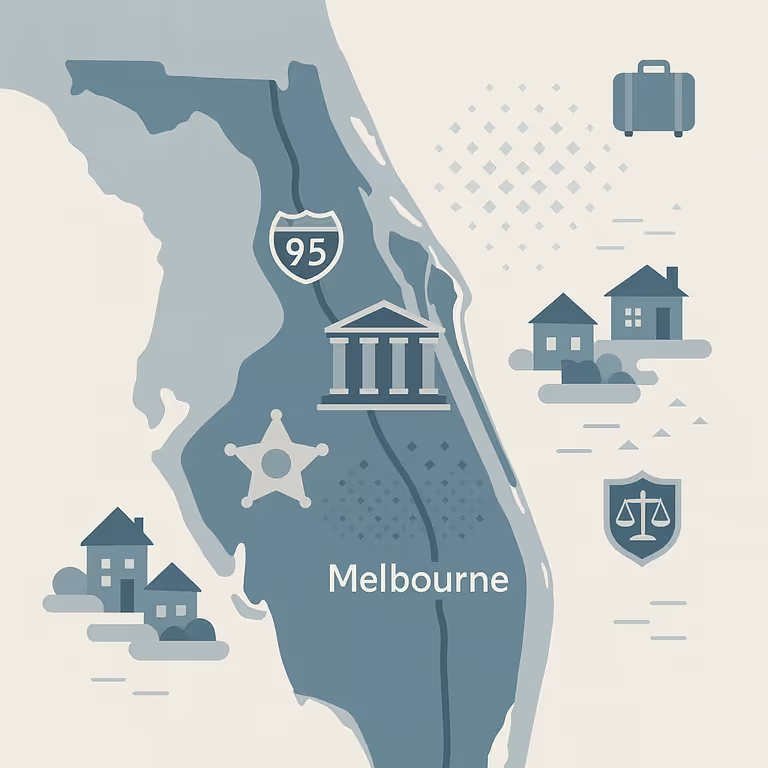
What Evidence Do You Need to Prove Your Case?
If you want to win a negligent security case, you need to prove that the property owner knew or should have known about the dangerous condition and failed to take reasonable action. This means gathering the right evidence is absolutely crucial to your case.
Here's what you need to document and collect:
Police reports from prior similar crimes at the location. These are often the most important pieces of evidence because they establish the pattern of criminal activity that made your attack foreseeable. Request reports from the local police department covering at least the past two to three years at the same property.
Documentation of inadequate security measures. Take photos of poor lighting, broken locks, malfunctioning security cameras, missing gates, or any other security failures you notice. Compare the property's security to similar businesses in the area. If other places have much better security, that can help your case.
Witness statements about ongoing security problems. Talk to other people who frequent the property – employees, customers, or nearby business owners. They might know about previous incidents or ongoing security concerns that weren't officially reported.
Property management records showing knowledge of crime issues. Through legal discovery, your attorney can often obtain internal emails, incident reports, insurance claims, or other documents that show the property owner was aware of security problems.
The key is to act quickly. Take photos of the scene as soon as possible after the incident, get contact information from any witnesses, and request police reports promptly. Evidence can disappear quickly – security cameras might record over footage, witnesses might move away, and memories can fade.
Remember, you're trying to prove two things: that the property owner should have known similar crimes were likely to happen, and that reasonable security measures could have prevented what happened to you. Our Melbourne personal injury lawyers understand exactly what evidence is needed to build a strong case and can help you preserve crucial information before it's lost.

What Evidence Do You Need to Prove Your Case?
Major changes happened to Florida law in 2023 that made negligent security cases more challenging for victims. These changes, part of a broader "tort reform" package, fundamentally altered how these cases work, and it's important you understand how they might affect your situation.
Juries Now Must Consider the Criminal's Fault
Under the new law, juries are required to assign blame to the actual criminal who committed the crime, not just the property owner. This means that even if a property owner was negligent with security, the jury might decide the criminal bears most of the responsibility. In practical terms, this can reduce the amount of money you might recover, even in a successful case.
Modified Comparative Negligence Rules
Florida switched from "pure" comparative negligence to "modified" comparative negligence. Here's what this means in simple terms: if you're found to be more than 50% at fault for what happened to you, you cannot recover any money at all. For example, if a jury decides you were 60% responsible for your injuries (perhaps by ignoring obvious warning signs or engaging in risky behavior), you would receive nothing, even if the property owner was also negligent.
Special Rules for Apartment Complexes
The new law created a presumption against liability for criminal acts in multifamily residential properties. This makes negligent security cases much harder to win if you were victimized at an apartment complex, condominium, or similar residential property.
What This Means for Your Case
These changes don't make negligent security cases impossible to win, but they do make them more complex and potentially less valuable. Success now requires even stronger evidence of property owner negligence and careful legal strategy to address these new hurdles.
The good news is that experienced attorneys who understand these recent changes can still effectively advocate for crime victims. The key is working with someone who knows how to navigate the new legal landscape and build cases that account for these additional challenges.

Melbourne and Brevard County: Local Factors That Matter
Where your case happens matters more than you might think. Local crime patterns, law enforcement policies, and community attitudes all play important roles in negligent security cases, especially here in Melbourne and throughout Brevard County.
Understanding Local Crime Patterns
Establishing foreseeability in your case requires understanding crime patterns in your specific area. The Melbourne Police Department provides a valuable resource called the Citizen Connect Community Crime Map, which allows residents to view reported crimes by neighborhood and incident type. This tool can be crucial for documenting patterns of criminal activity that should have put a property owner on notice.
For cases throughout Brevard County, crime statistics and patterns can vary significantly from area to area. What's considered normal security for a business in a low-crime residential area might be completely inadequate for a similar business near a high-crime corridor.
Brevard County Sheriff's Approach
The Brevard County Sheriff's Office operates under a "Zero Tolerance for Crime" policy, with Melbourne covered by the Central Precinct. This proactive law enforcement approach can actually impact your negligent security case in interesting ways. When local law enforcement is actively addressing crime problems in an area, it becomes harder for property owners to claim they were unaware of security risks.
Local Court Considerations
Brevard County judges and juries may have different perspectives on what constitutes reasonable security measures compared to other parts of Florida. Our local legal community understands these nuances, including which types of evidence tend to be most persuasive and how local courts typically interpret foreseeability requirements.
Community Standards
What's considered "reasonable" security can vary by community. Security measures that might seem excessive in a small town could be viewed as inadequate in a busier commercial area. Understanding these local standards is crucial for building a persuasive case.
If you've been victimized on someone's property in Melbourne or anywhere in Brevard County, our Brevard County negligent security attorneys understand these local factors and how they impact your case. We know the local courts, understand area crime patterns, and can effectively present your case in the context of community standards and expectations.
Your Legal Options and Next Steps
After being victimized on someone else's property, you likely have many questions about your rights and options. Here are the most common questions we hear from people in your situation:
How long do I have to file a negligent security claim in Florida?
In most cases, you have two years from the date of the incident to file a negligent security lawsuit in Florida. This is call the "statute of limitations." However, don't wait until the deadline approaches – evidence can disappear, witnesses can become harder to locate, and memories can fade. The sooner you begin investigating your case, the better your chances of success.
What types of damages can I recover?
If you win your negligent security case, you may be able to recover compensation for medical expenses (both current and future), lost wages, pain and suffering, emotional distress, and other damages related to your injuries. The exact amount depends on the severity of your injuries and how they've impacted your life.
Do I have a case if the criminal was never caught?
Yes, you can still pursue a negligent security claim even if the person who attacked you was never identified or arrested. Your case is against the property owner for failing to provide adequate security, not against the criminal who committed the assault. A criminal conviction can help your case, but it's not required.
What if I was partially at fault for what happened?
Under Florida's new modified comparative negligence rules, you can still recover damages as long as you're not more than 50% at fault. However, your recovery will be reduced by your percentage of fault. For example, if you're awarded $100,000 but found 20% at fault, you would receive $80,000.
How much does it cost to hire a negligent security lawyer?
Most negligent security cases are handled on a contingency fee basis, which means you don't pay attorney fees unless you win your case. If you do win, the attorney fee comes out of your settlement or judgment. This arrangement allows victims to pursue justice without having to pay large legal fees upfront.
What makes a strong negligent security case?
Strong cases typically have clear evidence of foreseeability (prior similar incidents), documented security failures, significant injuries or damages, and evidence that reasonable security measures could have prevented the crime. Cases are weaker when there's no history of similar crimes, when existing security was reasonable under the circumstances, or when injuries are minor.
Should I accept the insurance company's settlement offer?
Never accept a settlement offer without first consulting with an experienced attorney. Insurance companies often make quick, low offers hoping you'll accept before you understand the full extent of your injuries and legal rights. These initial offers are almost always far less than what your case is actually worth.
Taking Action
If you've been the victim of a crime on someone else's property, you may have legal rights that can help you recover compensation for your injuries and hold negligent property owners accountable. Each case is unique and requires careful evaluation by someone familiar with current Florida law and the recent changes that affect these cases.
Contact Doug Beam and the experienced legal team at Douglas R. Beam P.A. for a free consultation to discuss your potential negligent security case. With decades of experience serving Melbourne and Brevard County clients, we understand the local legal landscape and can help you understand your rights. Call us at (321) 723-6591 to schedule your free case evaluation today.
For more information about your rights, you may also want to learn about premises liability rights and other personal injury cases we handle throughout Central Florida.
This article provides general information and is not a substitute for legal advice. Laws can change, and the details of your situation matter. For personalized guidance, please contact a qualified Florida personal injury attorney.
Not Sure What To Do Next? We Can Help – Fast & Free.
Worried About Your Injury Case?
We'll Review It - Free
Don’t miss an article
Florida law, local insights, and the occasional dog pic.
Delivered straight to your inbox.
More articles
Browse all articlesFree Case Review
Get a complimentary review of your case

.webp)

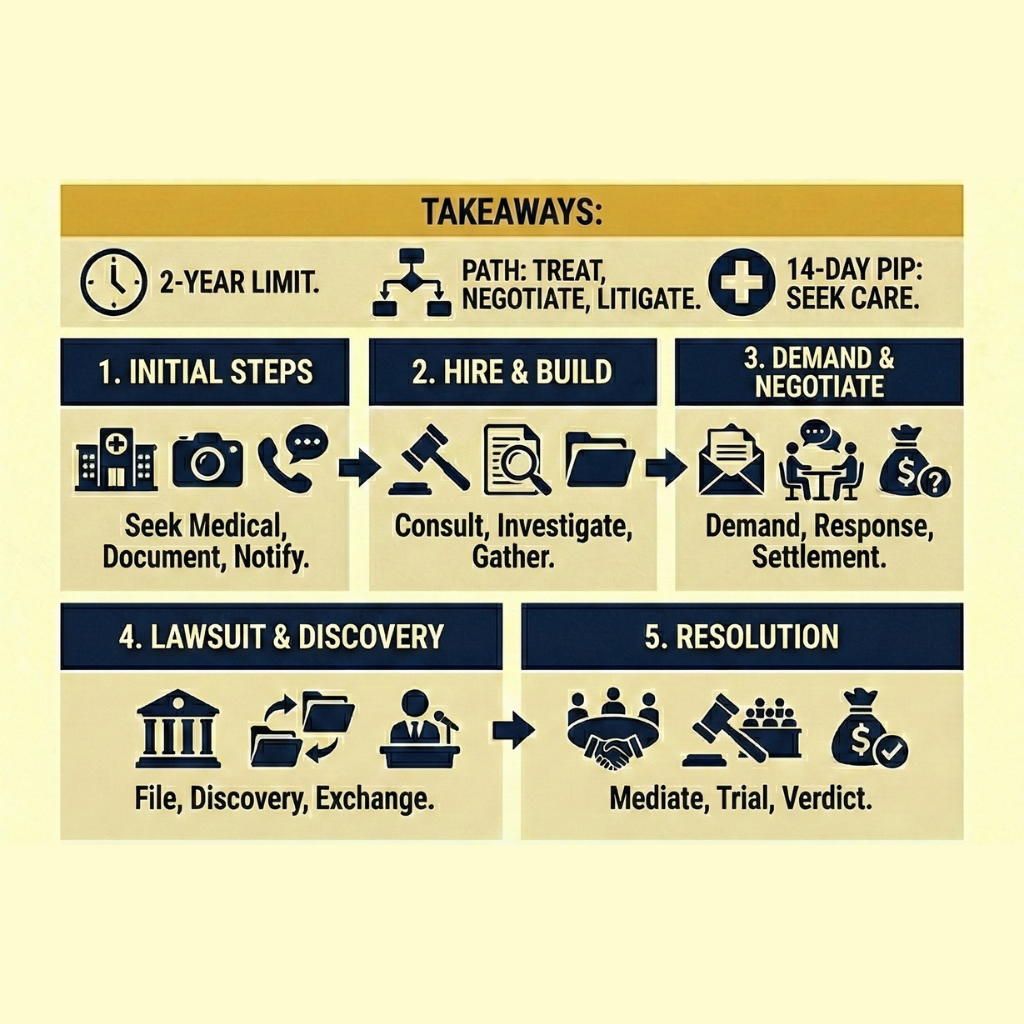



.png)


